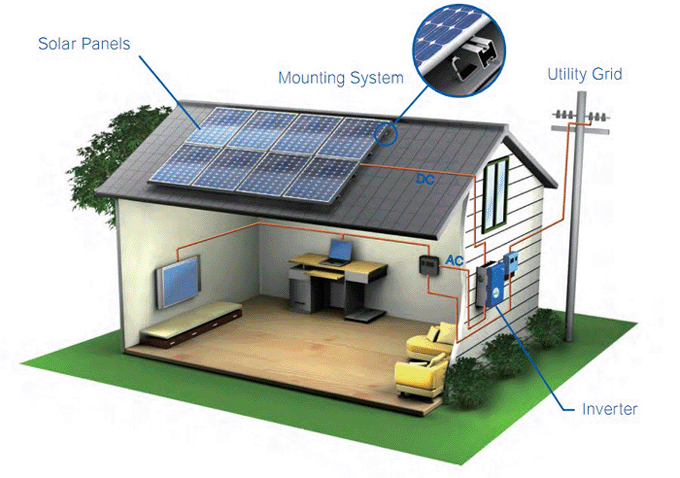If you're looking to launch a career in solar trade jobs in West Vero Corridor, FL, by 2025, you'll need to secure certifications like the Certified Solar Contractor License (CVC) or Certified Electrical Contractor License (EC), complete at least four years of field experience including supervisory roles, and pass state exams administered by the Florida Department of Business and Professional Regulation. The process typically takes 4-5 years involving apprenticeships and training, with costs varying based on programs but potentially including fees for courses and exams; once qualified, solar workers in Florida earn an average of $18.31 per hour, though career advancement into sales or management can boost earnings up to $175,000 annually, amidst a growing job market projected to add more positions due to incentives like the 30% federal tax credit.
Understand the Role of a Solar Trade Professional
Before jumping into solar trade careers, it's essential to grasp what these roles involve. Solar trade professionals, such as installers, electricians, and contractors, are skilled workers who design, install, maintain, and repair solar energy systems in residential, commercial, and industrial settings. This includes tasks like assessing sites for optimal solar panel placement, ensuring systems comply with local building codes, and troubleshooting issues to maximize energy efficiency and safety.

In West Vero Corridor, FL, these professionals play a key role in Florida's push towards renewable energy, leveraging the state's abundant sunlight to reduce reliance on traditional power sources. Demand is driven by national trends, with solar jobs increasing by 15% in Florida in 2023, adding 1,841 positions, and projections indicating continued growth through 2025 due to policies like the Inflation Reduction Act1.
Do You Need a License or Certification to Work in Solar Trade in West Vero Corridor, FL?
Yes! To work unsupervised in solar trade jobs in West Vero Corridor, FL, you must obtain specific licenses and certifications by 2025. Florida requires a Certified Solar Contractor License (CVC) for solar projects or a Certified Electrical Contractor License (EC), with exams covering solar energy systems and safety protocols administered by the Florida Department of Business and Professional Regulation23.
Local regulations in West Vero Corridor align with state standards, but additional requirements may apply, such as ensuring installations meet federal incentives. These certifications are crucial for performing tasks like solar PV installations, and without them, you risk limitations on job opportunities or legal issues—check resources like Florida's solar licensing database for details.
Solar Trade Apprenticeship Requirements and How to Find One
According to Florida guidelines, a solar trade apprenticeship typically lasts 48 to 60 months, depending on the role, and requires combining on-the-job training with classroom instruction to build skills in areas like system design and safety1. Here's a breakdown of key apprenticeship terms:
| Solar Trade Role |
Term (in Months) |
| Solar Installer |
48 |
| Solar Electrician |
60 |
| Certified Solar Contractor |
60 |
| Solar Panel Technician |
54 |
To find an apprenticeship in West Vero Corridor, explore options like the Florida Solar Energy Apprenticeship Program, a statewide initiative registered with the U.S. Department of Labor—search for local openings on Gild to connect with thousands of roles. Joining programs through organizations like the Florida Solar Energy Center can also provide prep courses, enhancing your chances for certification and hands-on experience4.

Steps to Becoming a Solar Trade Professional in West Vero Corridor, FL
1. Meet the Basic Requirements
To start your path in solar trade, you must meet foundational criteria: be at least 18 years old, hold a high school diploma or GED, and demonstrate basic knowledge in math and science. Florida mandates that candidates be able to read, write, and understand English, while physical fitness is essential for tasks like installing solar panels.

2. Enroll in Training or Education Programs
While not always required, enrolling in solar energy training programs is highly recommended to build expertise. In Florida, options include online courses from providers like Ed2Go, covering topics such as photovoltaics and system components—access these from West Vero Corridor via Ed2Go's renewable energy programs. Local apprenticeships can supplement this with practical training, helping you prepare for licensing exams and addressing the growing demand fueled by Florida's 15% job increase in 20235.
3. Complete an Apprenticeship
An apprenticeship is a core step, offering on-the-job training under licensed professionals. In West Vero Corridor, participate in programs like Florida's solar apprenticeship to gain the required four years of experience, including supervisory roles—find opportunities on Gild or through local solar companies. This phase ensures you develop skills in installation and maintenance, aligning with projections of solar job growth through 20256.
4. Obtain Necessary Certifications and Licenses
After your apprenticeship, apply for your CVC or EC license by passing the state exam and proving experience. Florida's process involves submitting documentation through official channels, with potential costs for exams around a few hundred dollars; success here opens doors to higher-paying roles, as seen in nearby Vero Beach where solar jobs offer salaries up to $185,0004. For more on licensing, visit IREC's Florida solar licensing blog.
5. Advance Your Career
Once licensed, consider advancing to roles like solar project management or business ownership, which can increase earnings beyond Florida's average $18.31 per hour for installers. With 11 solar jobs listed in Vero Beach as of 2025, networking through unions or platforms like Gild can lead to opportunities, especially with incentives driving the sector's expansion7.
Your Next Steps
Embarking on a solar trade career in West Vero Corridor, FL, in 2025 offers exciting prospects in a booming industry, with growth factors like technological advancements and government policies creating more jobs despite challenges like skill gaps. Start by exploring apprenticeships on Gild to kick off your journey, build your network for hands-on experience, and leverage incentives to maximize your earnings potential—don't wait, check out available roles today and position yourself for success in this essential field!
Sources

